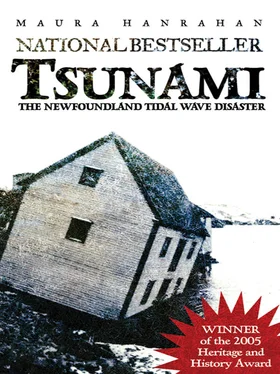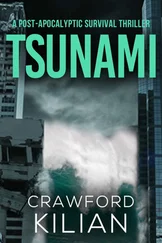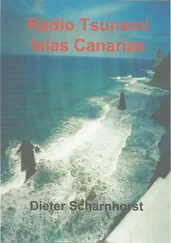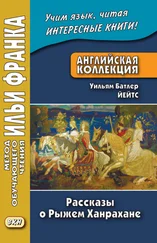At Lawn, where Anna Tarrant struggled with her sore throat, a bevy of school boys avoided their homework by playing soccer before supper. They were soccer mad in Lawn and in the villages adjacent to it. They started playing the game not long after they could walk.
One of the smaller boys who played that afternoon, Austin Murphy, was just seven. In the middle of the game he stopped to take a rest. He sat on a flat grey rock on the side of the meadow that served as their soccer pitch and took in the unusual brightness of the late fall day. He could see the bay from where he was and, beyond that, the wide Atlantic Ocean, which was as smooth as a baby’s bottom for once. It put Austin in mind of mid-summer, though the nip in the air reminded him it was nearly winter.
Suddenly, the rock shook under him for a full three or four seconds. At first he looked down at it between his skinny little legs, noticing the shaking grass that surrounded it. After the first second or two, he turned his eyes to the boys still playing soccer. They had stopped. They were looking around, too, just as he was. It wasn’t just this rock, then; it was the whole place that was shaking. Perhaps all of Lawn was quaking—or maybe even the whole of Newfoundland.
Austin sat there wondering what was going on. His mates gathered to him. They, too, were flummoxed.
“I never saw anything like that before,” said one of the team captains.
“It was something strange all right,” one of the boys agreed.
None of them were scared; it just hadn’t occurred to them to be afraid, especially since nothing came after the initial tremor.
Then one of the older boys came up with an answer that satisfied them all.
“I know just what it was,” he announced, spinning the soccer ball on his forefinger. “It’s the engines starting up in the powerhouse. That’s what made that shaking.”
The boys nodded. The United Towns Electric Company had all but completed the installation of a hydro-electric plant on Northeast River near Lawn. In November, 1929 the company was about to put the plant into operation, as everyone knew. However, the generators would be turned by water-driven turbines which would make a scarcely audible humming sound. The boys on the soccer pitch, of course, could not know this. They had no way to know that what they had witnessed was the beginning of a tsunami .
Sarah Ann Rennie bent over her Singer sewing machine. She wanted to get a start on her sewing before it got too dark. She hated sewing under the lamp and having to squint; she wanted to save her eyes. She had cut up a shirt of Martin’s, her oldest, and was making it into two shirts for Bernard, the baby. She smiled at her own ingenuity. She knew her long dead mother would be pleased. Her fingers moved in unison, pushing the blue cotton under the needle, as her right foot worked the pedal.
On the black pot-bellied stove was a huge steel pot full of potatoes, carrots, and turnips from Sarah’s root cellar. Sarah had them on slow boil. She’d round out the meal with a bit of salt fish and some of the bread she made every day. She might even let the children have some molasses, though, like all the women in Lord’s Cove and the rest of the communities on the coast, she had to spare it along through the winter.
Sarah was a Fitzpatrick before she married Patrick Rennie of nearby Lamaline. She was born in Lord’s Cove in 1892 and baptized seven weeks later when they could get handy to the priest at Allan’s Island, right by Lamaline. Her father still lived next door to her in Lord’s Cove, alongside The Pond on the eastern side of the cove. The children came right away: Martin, Albert, Rita, Patrick, named for his father, Margaret, and Bernard. There would probably be more, Sarah knew, and when she thought of this, she smiled.
She glanced at baby Bernard as she sewed. At eighteen months, his cheeks were round and pink, the picture of health. He was lively and Sarah had tied him into his high chair. Blond curls framed his face and he called out as he banged his rattle on his high chair table. He was already a handful, this child, Sarah thought, laughing at him as she took a scissors to the cloth in her hands.
Nine-year-old Rita and seven-year-old Patrick played with a spinning top in the pantry. Their little sister, Margaret, only four, was in there with them. Sarah could hear the whir of the top and then the thud as it hit the floor. Then she heard the scuff of Rita’s and Patrick’s shoes on the plank floor. They might be playing school now or house, she thought, alongside the barrels of herring, mackerel, and cod that stood against the pantry wall. Above them hung a brace of rabbits and a row of jars, filled with pickled onions and beets. There were jam jars there, too, containing blueberries and strawberries. Sarah even had some rhubarb jam left, though her children loved it and it was November. Patrick and his sisters were particularly close, little mates, their mother called them. Sarah let them idle with their games before supper and their lessons. They’d have a long dark winter ahead of them and all that trekking to school in the cold, poor mites. And Rita was getting old enough to be a real help to her. She’d let them play when they could.
When the tremor came, Sarah was too face-and-eyes into her sewing machine to notice it. Her foot pushed heavily on the pedal as the needle dove into the pieces of cotton, tying them together. The clack-clack of the machine quickened as she worked and the earth trembled. In the pantry, Rita and Patrick stopped their play as the quake began and laughed at the tremor.
Across the harbour in Lord’s Cove, a group of fishermen played cards at Prosper Walsh’s. They were glad for the leisure. They had spent every waking hour from June until September on the water or bringing their fish in to the beaches for the women to cure. At sea they went to the same grounds their fathers and grandfathers fished. They caught squid and slammed it onto the dozens of hooks on the lines they let out into the water. When they hauled the lines in, they tore codfish off the hooks and threw them into the bellies of their dories. Some days the men roasted in the sun; other days the fog drifted up from the St. Pierre Bank and seeped into their bones. Their wrists constantly itched and pained with the salt water blisters they called water pups. Their backs ached from the bending over; their hands and fingers grew red with nicks and cuts. At night they flopped on their beds, dead weights. During the fall and winter they hunted partridge and snared rabbits, cut wood, and repaired their fishing gear, making new nets and trawls. But, unlike the summer, in fall and winter there was time for a Christmas dance, some mummering, and the odd game of cards with friends.
Patrick Rennie, Sarah’s husband, laughed out loud when he won a hand. “Look Martin! Look Albert!” he called to his oldest sons. “Your father’s won!” He might have been awarded the crown jewels for the smile on his face, russet with years of fishing. The boys smiled, delighted to be among the men. Martin, just into his teens, had been on the water all summer with his father and had not returned to school; he was a man now, a fisherman. Albert intended to follow him.
They were starting to run low on rum and someone mentioned that there was none left in the village.
“Never mind,” one of the card players said. “A few of the fellows have gone over to St. Pierre. I daresay that’s what their errand was for. They should be back this evening. And they might have a drink for us!”
The men sat around the Walshs’ kitchen table while the boys stood behind them, peeking at their cards. Half empty cups of tea stood on the table, as did a few glasses of rum. Suddenly the table shook and the cups and glasses did a little jig. Patrick was the first to laugh, triggering a similar reaction in most of his friends. His sons giggled as well.
Читать дальше












